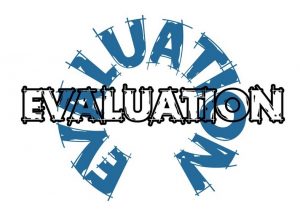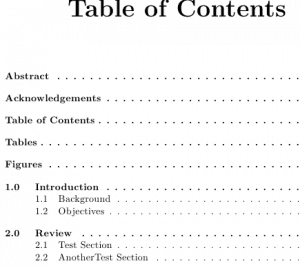Guide to Writing a Killer Business Proposal
It is crucial for every business owner or entrepreneur to learn how to write a compelling business proposal. Here is a complete guide.
Increasing competition characterizes the modern day business environment. When you factor in increased consumer sovereignty, the situation even gets tough. Business people have been forced to master the art of persuasion, especially when putting forth business proposals to potential business partners and clients. These proposals could be the lifeline of the business. It is the means by which contracts are secured with other parties relevant to the business. Thus, it is crucial for every business owner or entrepreneur to learn how to write a compelling business proposal. This article will give the ultimate guide to writing a winning business proposal.
Identify what the client needs

Know what your client needs from you
(Source: https://pixabay.com/en/cloud-needs-desires-longings-705732/)
This is the initial step before writing your business proposal. You have to know what your client needs and how your business can provide it.
To identify these needs, you have to engage the clients personally. You could call them and ask questions about their needs. Be keen on listening to what the client is saying. If possible, even arrange for a meeting.
After meeting with the client, brainstorm on the ways your business can help them meet his/her needs. Look at various data that revolve around your client’s needs.

The US Chamber of Commerce could be a great reference point
Check professional registries like the Chamber of Commerce in the US. They can give you pertinent information about how the clients business compares to their competitors. You can learn about the client’s industry by doing online searches. Check their websites too for relevant information. The premise here is to gather as much information about your client to enable you to write a winning business proposal.
Understand the requirements

Clearly understand the RFP requirements
(Source: https://www.pexels.com/photo/businessman-man-desk-working-90333/)
Before you write a business proposal, it is essential to understand the Request for Proposal (RFP) clearly. The RFP stipulates what is expected of you. It contains the position and wants of the client or partner to whom you are writing. It may also give some minimum conditions that have to be met before submitting the proposal. You have to understand your role in the business transaction.

Understand the costs
You also have to get finer details concerning the budget, time frames, and scope of work to ascertain if your business has the time, resources and skills to undertake the project in question.
It is recommended to undertake extensive research and analysis to understand the needs of the client to write a winning business proposal. At this stage, you hold all prerogative to decide whether to proceed with the business proposal or not. Sometimes, the process of writing can be quite costly and tedious due to the research involved. Again, your business might not offer much as per the conditions of the client in the RFP. Send proposals if the business is certainly able to deliver.
Plan for the project

Come up with a proper plan for the project
(Source: https://pixabay.com/en/mark-marker-hand-leave-516277/)
Planning for the project basically entails outlining the framework in which the business objectives will be achieved. This basically includes answering the 5 W’s and H factor of the project. You need to know:
• Who will be responsible for the project? The answer to this question will identify the person who will do the required work and will be answerable to the clients.
• What will be used in the execution of the project? The answer will give all resources, costs, and items that are needed to implement the project.
• Where will the project be done? This answers the question gives the location and premises where the project will be delivered.
• When will it start? The answer gives the projected start time of the project and the expected timelines to finish it. Also, details concerning payment due dates are to be considered.
• Why are you doing this? The answer gives the underlying reason for undertaking the process. It also justifies the approaches used in the business dealing.
• How will it be done? The answer gives intricate details of how the project will be managed and the implications. It also shows how the client will benefit.
Evaluate your plan

Evaluate if you are meeting the client’s needs
(Source: https://pixabay.com/en/district-evaluation-assessment-1264717/)
After planning for the business project, you have to subject it to an evaluation to determine its viability. The sure way of doing this is counterchecking it with the criteria in the RFP. This will ultimately make you know if you are meeting the client’s specifications. If there are any disparities, ensure that they are rectified so that you deliver value.
Write the business proposal

Write your proposal after considering the preconditions
(Source: https://www.pexels.com/photo/writing-notes-idea-class-7103/)
Having ensured that the above factors are met, you can get down to writing your business proposal. The template for writing is similar to a book report template.
The basic format for writing a business proposal is as follows:
• The introduction

Your vision and mission should be part of your introduction
Start by introducing your company. Give your mission, vision and your objectives. Highlight what your brand entails and why it is unique from others.
• The executive summary
This is a short summary of the key highlights and value that your business offers. It is meant to show people why they should settle for your services.
• The table of contents

Sample table of content
This is recommended if your proposal is going to be long. If it is short, then don’t include it.
• The body
This is where you will present your actual proposal. All pertinent information relating to the project will be highlighted here. It also includes every intricate detail that is crucial in the implementation of the project. Here, you will let your client know what you can deliver based on the requirements he/she gave you on the RFP.
You should also give all the cost implications and timeframes that will be required to implement tasks. The mode of delivery should also be stated. The terms of your proposal are equally important and should be stated in the body. They tend to form a binding agreement between you and your client.
Don’t forget to put an expiry date on your proposal. Put a time limit, say, 90 days so that you can create a sense of urgency. The expiry date also forestalls the possibility where your client comes after many years after you have probably increased your prices or even changed your mode of operations.
• The conclusion
Having written the main aspects of the proposal in the body, you should draw a conclusion. It should restate the main points you considered in the body. It should also have a call to action that moves the client to act swiftly. Your conclusion should contain what you want your client to take home from the proposal.
Review, submit and follow up on the proposal

Review and submit your proposal after ensuring it is flawless
(Source: https://pixabay.com/en/hook-check-mark-yes-consent-done-881440/)
After writing the proposal, review it. Check for any errors. Rectify them. After ascertaining that it is free from any errors or misrepresentations, go ahead and submit it. After submission, don’t just be complacent. Ensure that you follow up with calls and meetings so that you increase the chances of winning.
Conclusion
Writing a business proposal should be basic for all entrepreneurs. It is essential for most business dealings in the competitive business environment. You should know that you are not the only one writing the business proposal to the client. Thus, you have to stand out with your business proposal.
By following the above guide, you are sure to write a winning business proposal!
Writer’s Bio:
Sophia Clark graduated from the University in the City of New York with B.A. in Journalism, 2011. She is a creative writer who loves to share her thoughts with readers, now she writes for Eliteessaywriters. In her free time, she enjoys writing fiction as well as reading it. Connect with her on Twitter and Google +.
